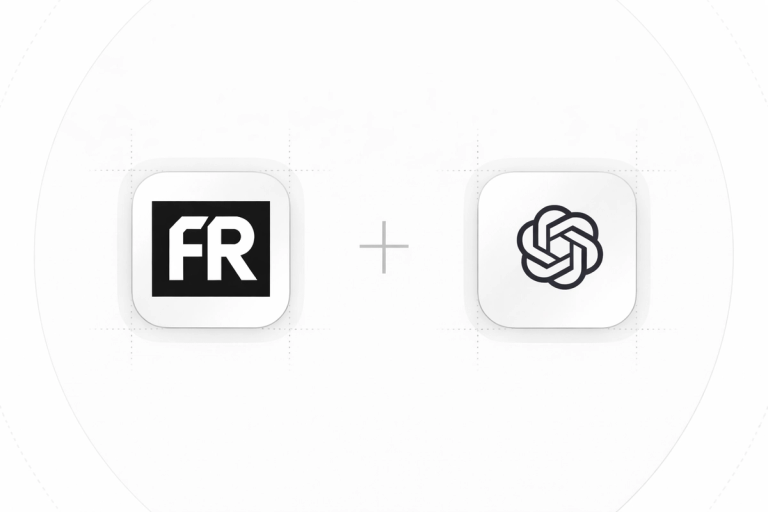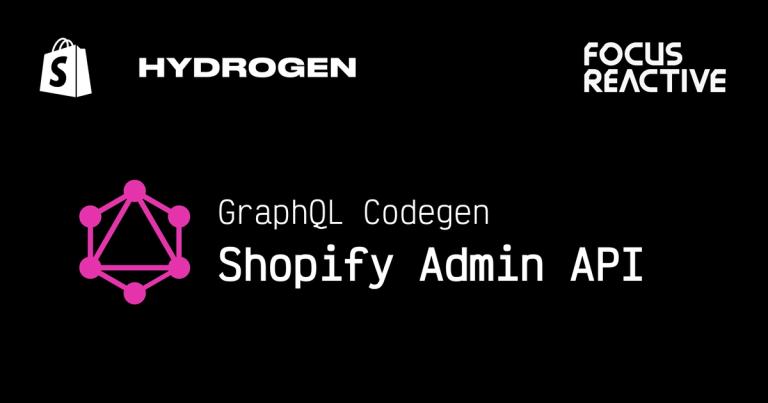Best Next.js Headless eCommerce Platforms
Discover the top Next.js headless eCommerce platforms, weighing their pros and cons to help you make an informed decision for your online store. Dive into our comprehensive comparison and find the perfect solution for your business's unique needs.

Choosing the right platform is crucial when building headless eCommerce solutions with Next.js
In this ultimate guide, we will examine the strengths and weaknesses of the leading headless eCommerce platforms that seamlessly integrate with Next.js. Leveraging our partnerships with Nacelle, Swell, Crystallize, Shopify, and CommerceLayer, we provide valuable insights to empower you in making an informed decision for your online store.
Let's explore these platforms in detail:
![]() Crystallize
Crystallize
Crystallize is an exceptional headless eCommerce platform that empowers businesses to create innovative and personalized online shopping experiences. With seamless integration with Next.js, Crystallize offers a powerful CMS, advanced product modeling capabilities, and a GraphQL API for efficient data retrieval.
Pros:
- Crystallize integrates seamlessly with Next.js, enabling developers to leverage the power of a robust JavaScript framework for high-performance eCommerce websites.
- It offers advanced product modeling capabilities, allowing businesses to create complex product structures, attributes, variants, and pricing models for highly customizable shopping experiences.
- Crystallize provides a feature-rich CMS that empowers businesses to efficiently manage their content, including products, categories, pricing, and promotions, with a user-friendly interface.
- This e-commerce platform's efficient GraphQL API allows developers to retrieve data precisely, optimizing performance and delivering faster response times for an enhanced user experience.
Cons:
- Crystallize may have a learning curve for developers new to the platform, requiring some time and effort to become proficient with its concepts and APIs.
- Compared to some other eCommerce platforms, Crystallize has a more limited marketplace for themes and extensions. However, custom solutions can still be developed using the platform's tools and documentation.
![]() Commerce Layer
Commerce Layer
CommerceLayer enables quick setup and configuration, responsive design templates, built-in SEO optimization features, and seamless integration with popular payment gateways.
Pros:
- Quick setup and configuration, allowing you to get your eCommerce store up and running swiftly.
- Responsive design templates for a seamless user experience.
- Built-in SEO optimization features to improve your store's visibility.
Cons:
- Restricted marketplace for plugins and extensions compared to some competitors.
- Pricing may be higher for certain advanced features.
![]() Nacelle
Nacelle
Nacelle provides versatile design options, seamless Next.js integration, a robust marketplace for plugins and extensions, and advanced personalization and optimization features.
Pros:
- Versatile design options to create a unique and visually appealing eCommerce store.
- Seamless Next.js integration for enhanced performance.
- Robust marketplace for plugins and extensions, expanding the functionality of your store.
Cons:
- A relatively newer platform with a smaller user community.
- Customization options may require technical expertise.
![]() Shopify
Shopify
Shopify has revolutionized its headless offering with Hydrogen (React-based framework) and Oxygen (global hosting solution), providing unprecedented flexibility while maintaining Shopify's robust backend infrastructure.
This flexibility extends to building custom eCommerce ChatGPT apps that maintain full brand control and zero commission fees.
Pros:
- Hydrogen & Oxygen: Free React framework with global hosting included
- Proven scalability: Handles millions in GMV with enterprise-grade infrastructure
- Comprehensive ecosystem: Access to vast app marketplace and payment integrations
- AI-powered features: Built-in personalization, dynamic pricing, and intelligent search
- Developer-friendly: Extensive documentation and pre-built components for rapid development
Cons:
- Limited flexibility compared to some other headless eCommerce platforms.
- Higher pricing plans, especially for advanced features.
- Additional apps or custom development may be required for specific functionality.
![]() Big Commerce
Big Commerce
BigCommerce offers a scalable architecture to accommodate business growth, advanced marketing and promotional tools, seamless integration with Next.js and third-party apps, and a wide range of templates for different industries.
Pros:
- Scalable architecture to accommodate your store's growth.
- Advanced marketing and promotional tools to drive sales and customer engagement.
- Seamless integration with Next.js and third-party apps for enhanced functionality.
Cons:
- Elevated pricing for advanced features.
- Constrained support for customization compared to some competitors.
- Occasional delays in customer support.
![]() Commerce tools
Commerce tools
CommerceTools is a flexible platform with easy setup and configuration, an intuitive user interface, essential eCommerce features, and strong community support.
Pros:
- Flexible platform for extensive customizations and tailored eCommerce experiences.
- Easy setup and configuration, minimizing the time required to launch your store.
- Intuitive user interface for a smooth and user-friendly management experience.
Cons:
- Pricing may be higher for certain feature sets.
- Advanced customizations may require technical expertise.
- Marketplaces for plugins and extensions may be restricted.
![]() Swell
Swell
Swell focuses on delivering exceptional performance with blazing-fast loading times, SEO-friendly architecture, comprehensive optimization features, and an active developer community.
Pros:
- Blazing-fast loading times for an exceptional user experience.
- SEO-friendly architecture to improve search engine visibility.
- Comprehensive optimization features to enhance your store's performance.
Cons:
- Higher cost compared to some competitors.
- Limited support for complex customizations.
- Relatively smaller marketplace for themes and plugins.
![]() Centra
Centra
Centra provides robust security measures, regular updates, PCI compliance, reliable performance, and strong customer support.
Pros:
- Robust security measures to safeguard your eCommerce store and customer data.
- Regular updates and bug fixes, ensuring stable and reliable performance.
- PCI compliance for secure transactions, instilling trust in your customers.
Cons:
- Restricted customization options compared to some competitors.
- Higher pricing for certain advanced features.
- Fewer integrations with third-party applications.
- By assessing the pros and cons of these headless eCommerce platforms, you can make an informed decision based on your unique requirements.
![]() Commerce.js
Commerce.js
Commerce.js offers a robust and scalable architecture, seamless integration with Next.js, extensive customization options, and advanced inventory management capabilities.
Pros:
- Robust and scalable architecture, ensuring optimal performance.
- Extensive customization options to tailor your eCommerce store to your specific needs.
- Advanced inventory management capabilities for efficient operations.
Cons:
- Steep learning curve for beginners.
- Higher cost compared to some other platforms.
- Requires technical expertise for customization.
Medusa
Medusa is an open-source headless commerce platform designed for developers, offering modular architecture, composable building blocks, and robust APIs that seamlessly integrate with Next.js to create flexible and scalable eCommerce experiences.
Pros:
- Open-source foundation with MIT license providing complete flexibility for customization and extending core functionality
- Modular plugin architecture allowing developers to easily add or replace functionality without disrupting the core system
- Built with TypeScript and offers a REST API along with a GraphQL API (via plugin), making it easy to integrate with Next.js applications
- Active development with strong community support and comprehensive documentation for developers
Cons:
- Relatively new platform compared to more established solutions, which may mean fewer third-party integrations
- Requires more developer resources for implementation compared to traditional all-in-one solutions
- Admin dashboard offers core functionality but may lack some advanced features found in enterprise platforms
Vendure
Vendure is a modern, headless eCommerce framework built on Node.js with TypeScript and GraphQL that provides a flexible foundation for creating custom eCommerce applications with Next.js, offering powerful admin tools and extensible architecture.
Pros:
- Built with TypeScript and GraphQL first approach, making it highly compatible with modern Next.js applications
- Powerful plugin system and extensive customization capabilities for tailoring the platform to specific business needs
- Comprehensive admin UI out of the box, reducing development time for store management functionality
- Excellent performance and scalability with support for complex product configurations and multi-channel sales
Cons:
- Higher learning curve for developers not familiar with GraphQL or TypeScript
- Smaller ecosystem of pre-built integrations compared to larger commercial platforms
- May require more initial development investment for highly specialized or complex requirements
![]() Saleor
Saleor
Saleor is a modern GraphQL-first headless eCommerce platform designed for high-performance digital storefronts, offering a Python-based backend with React-powered dashboard that effortlessly integrates with Next.js for creating exceptional shopping experiences.
Pros:
- GraphQL API built with performance in mind, enabling efficient data fetching for fast Next.js storefronts
- Comprehensive feature set including complex product configurations, checkout flows, and payment integrations
- React-based Saleor Dashboard providing an intuitive interface for managing products, orders, and customers
- Strong focus on PWA capabilities and omnichannel selling strategies for modern commerce experiences
Cons:
- Commercial cloud offering (Saleor Cloud) for larger implementations, though the core platform remains open-source
- More complex deployment requirements compared to some SaaS alternatives when self-hosting
![]() Fabric
Fabric
Fabric is a modern headless commerce platform purpose-built for growth, offering open and modular design that allows businesses to go live in weeks while replacing expensive legacy platforms.
Pros:
- Rapid deployment: Open architecture enables quick time-to-market
- Comprehensive suite: PIM, OMS, subscriptions, and marketplace integrations included
- Multi-model support: Built for both B2B and direct-to-consumer operations
- Modern infrastructure: Cloud-native platform designed for scalability and performance
- Operational efficiency: Focus on streamlining business processes and reducing complexity
Cons:
- Newer platform: Smaller ecosystem compared to established
- Enterprise focus: May be too complex for smaller or mid-market businesses
- Limited integrations: Fewer pre-built third-party connections available
- Technical requirements: Requires development expertise for full implementation
Spryker
Spryker delivers a modular cloud-native architecture with 40+ independent modules, supporting various business models including B2B, B2C, B2B2C, and marketplace operations.
Pros:
- Modular architecture: 40+ independent, customizable modules for maximum flexibility
- Multi-business model: Supports B2B, B2C, B2B2C, and marketplace operations seamlessly
- Enterprise features: Advanced product management and complex workflow support
- Cloud flexibility: Compatible with AWS, Azure, and Google Cloud Platform
- Extensive customization: Highly configurable for unique business requirements
Cons:
- High complexity: Can be overwhelming for mid-market businesses
- Expensive implementation: Requires significant investment and ongoing maintenance costs
- Learning curve: Documentation and developer bootcamp materials need improvement
- Small community: Fewer third-party resources and community support available
In conclusion, selecting the right headless eCommerce platform for your Next.js project is a critical decision that can greatly impact the success of your online store. We have explored the pros and cons of the top 11 platforms, equipping you with valuable insights to make an informed choice.
At FocusReactive, we understand the significance of finding the perfect platform that aligns with your business needs. As proud partners of Nacelle, Swell, Crystallize, Shopify, and CommerceLayer, we possess extensive expertise in these platforms.
Our team of experienced professionals can guide you through the selection process, ensuring that your eCommerce store is built on a solid foundation.
Whether you require a robust and scalable solution like Commerce.js or seek the versatility of Nacelle, our partnership enables us to provide valuable insights and assistance. We can leverage the strengths of Swell, Crystallize, Shopify, and CommerceLayer to meet your specific requirements.
Get in touch with us to embark on your journey towards eCommerce excellence with Next.js and our trusted partnerships. Together, we can transform your vision into a thriving reality.






